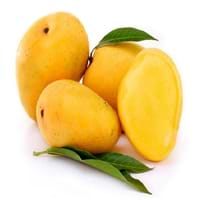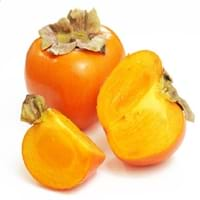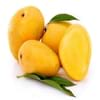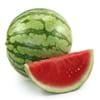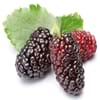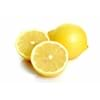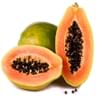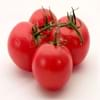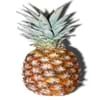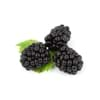Health Benefits
Cancer prevention, Cures fatigue, Heart care, Prevents strokes
Anti-oxidant properties, Beneficial in curing fever, Cancer prevention, Heart care, Reduces nervous tension
General Benefits
Anti oxidant properties, Boosts immune system, Controls blood pressure, Digestive aid, Improves eye vision, Maintains healthy cholesterol level
Anti-inflammatory properties, Boosts immune system, Controls blood pressure, Digestive aid, Eye care, Fights against infections, Helps in weight loss, Improves blood circulation
Skin Benefits
Anti-aging benefits, Brightens and lightens complexion, Skin cleansing, Skin rejuvenation, Treatment of acne, Treatment of blackheads, Treatment of dark spots
Anti-aging benefits, Brightens and lightens complexion, Reduces wrinkles
Hair Benefits
Good conditioner, Prevents hair loss, Treatment of dandruff
Good conditioner, Promotes longer and healthier hair, Treatment of dandruff
Allergy Symptoms
Abdominal pains, Breathing difficulty, Diarrhea, Runny nose, Sneezing, Swelling of mouth, tongue or lips, Watery eyes
Abdominal pains, Anaphylaxis, Inflammation
Side Effects
Increase in blood sugar level, Diarrhoea, Weight gain
Affects blood glucose levels, Decrease in blood sugar levels, Coagulation
Best Time to Eat
Don't consume at night and before bed, Eat the fresh ones, avoid mixing with any other foods, don't eat after meal., Morning time (before lunch)
Along with meal, As a snack in the late afternoon, Don't consume at night and before bed, Eat the fresh ones, avoid mixing with any other foods, don't eat after meal.
Vitamin A (Retinol)
Not Available
Vitamin B1 (Thiamin)
Not Available
Vitamin B2 (Riboflavin)
Not Available
Vitamin B3 (Niacin)
Not Available
Vitamin B5 (Pantothenic Acid)
Not Available
Vitamin B6 (Pyridoxin)
Not Available
Vitamin B9 (Folic acid)
Not Available
Vitamin C (Ascorbic Acid)
Vitamin E (Tocopherole)
Not Available
Vitamin K (Phyllochinone)
Not Available
Lutein+Zeaxanthin
Not Available
Calories in Fresh Fruit with Peel
Not Available
Calories in Fresh Fruit without Peel
Not Available
Calories in Frozen Form
Not Available
Calories in Canned Form
Not Available
Type
Tree fruit
Berry, Tree fruit
Season
Spring, Summer
Autumn, Winter
Varieties
Alphonso, Valencia Pride, Badami, Chaunsa, Nam Dok Mai, Glenn, Sindhri, Madame Francique, Kesar and Keitt
Early Golden, John Rick, Miller, Woolbright and Ennis
Color
Orange, Red, Yellow
Orange, Red, Yellow
Inside Color
Yellow
Yellow
Origin
Southern Asia
Eastern United States
Soil Type
Clay, Loam, Sand
Sandy loam, Well-drained
Climatic Conditions
Humid, Warm to hot climate
Can tolerate wide range of climates, Sunny
Facts about
- A mango tree can bear fruits even after the age of 300 years.
- Height of a mango tree can be as high as 100 feet.
- In India, mango is known as a symbol of love. Also, a mango basket is considered as the sign of friendship.
- It is said that formation of seeds inside the persimmon fruit shows what type of winter is coming(type of snow).
- There are about 2000 varieties of this fruit.
- The American persimmon has another name 'Possumwood'.
Other Countries
Bangladesh, Brazil, China, Indonesia, Mexico, Nigeria, Pakistan, Philippines, Thailand
Azerbaijan, Brazil, Costa Rica, Japan, Korea, Pakistan
Top Importer
United States of America
United States of America
Top Exporter
Mexico
United States of America
Botanical Name
Mangifera Indica
Diospyros virginiana
Synonym
Not Available
Not Available
Subkingdom
Tracheobionta
Tracheobionta
Division
Magnoliophyta
Magnoliophyta
Class
Magnoliopsida
Magnoliopsida
Subclass
Rosidae
Dillenhidae
Order
Sapindales
Ericales
Family
Anacardiaceae
Ebenaceae
Genus
Mangifera
Diospyros
Species
M. indica
D. virginiana
Generic Group
Cashew
Not Available
Compare Mango and American Persimmon
It is important compare Mango and American Persimmon as both the fruits have a different nutritional value. Their comparison can be done on the basis of their vitamin and mineral content, calories, benefits as well as characteristics, making it easier for us to choose the best fruit for our diet. Their general health benefits are as follows:
Mango Benefits: anti oxidant properties, boosts immune system, controls blood pressure, digestive aid, improves eye vision and maintains healthy cholesterol level.
American Persimmon Benefits: anti-inflammatory properties, boosts immune system, controls blood pressure, digestive aid, eye care, fights against infections, helps in weight loss and improves blood circulation.
Fruits are also used as a remedy for various hair problems. The hair benefits of Mango are: good conditioner, prevents hair loss and treatment of dandruff and hair benefits of American Persimmon are: good conditioner, promotes longer and healthier hair and treatment of dandruff. Some fruits are known to cause allergic reactions. The allergy symptoms of first fruit are: abdominal pains, breathing difficulty, diarrhea, runny nose, sneezing, swelling of mouth tongue or lips and watery eyes and the symptoms of second fruit are: abdominal pains, anaphylaxis and inflammation. Get sorted Mango vs American Persimmon comparison with the help of fruit comparison tool by fruitvs.com.
